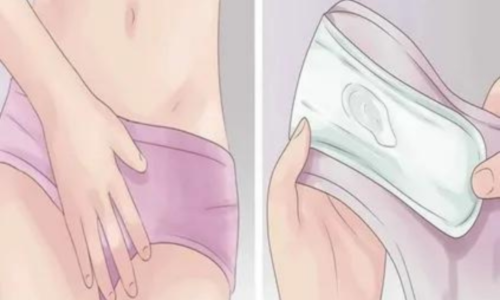
There’s no doubt that less is better than more when it comes to vaginal health. Women, like all humans, don’t need to add anything to their garden.
Yet stores continue to tempt women with tons of products that promise to rejuvenate their most prized possessions, from hastily inserted honeycombs to magical pearls to looking for a tighter, younger vagina by applying scented oil.
On the other hand, gynecologists warn that such strange herbal remedies for the vagina can cause reproductive health complications.
Here, we take a look at five popular but unhealthy trends.
Wasp nests
Wasp nests, also known as oak bark, are marketed as a natural remedy for tightening the vagina (unlike wasps), but Canadian gynecologist Dr.
Dr. Gunter explains that they are medically and sexually undesirable, warning that drying out the vaginal mucosa increases the risk of friction during sex, destroys the protective mucous layer, and increases the risk of contracting HIV. Are.
Oak balls are made when a female bee inserts her eggs into a piece of oak tree. When the wasps hatch, the legless larvae begin to secrete chemicals that rearrange the oak’s natural growth process, forming an oak bark around the acorn, explains the Royal Horticultural Society.
While some natural ingredients may help alleviate health problems, Dr Gunter says, “This is a dangerous practice and can actually cause harm. Here are some pro tips.” – If something burns when placed in your vagina, it’s generally bad for your vagina. (Remember now, ladies.)
2 Pearls for Uterine Detox
Detoxification is the buzzword today. This epidemic extends from the liver to the vagina. Many women are advised to place three herbal balls (or pearls) wrapped in gauze in their vagina for 72 hours to “detoxify the uterus.”
Proponents say it can restore natural balance by increasing flexibility, regulating menstruation, killing parasites and (bad) bacteria, improving fertility, reducing discharge, and removing toxins. Claims: These unspecified toxins are responsible for “major imbalances” such as bacterial vaginosis, yeast infections, endometriosis, infertility, vaginal pain, excessive bleeding, vaginal dryness, polycystic ovary syndrome and fibroids. This is said to be the cause of
But Becky Burbidge, head of communications at the FPA, a leading sexual health charity in London, says: “Your vagina is great at cleaning itself, and using scented products can help. Conversely, it can upset the balance of natural bacteria.” Bacterial infections are the most common cause of abnormal vaginal discharge and can also increase the risk of thrush.
Basically, the vagina cleans and regulates itself. So you don’t need to pack herbal balls to restore your balance.
3 Pull the wand
They’re called Tightening Her Pledge Magic Wands – these wands are designed to help women “feel tight and wanting again” (says one online retailer’s website).
Made with natural ingredients like oak galls, pearl powder, and aloe vera, these sticks “stimulate the body’s natural cleansing system and rejuvenate vaginal skin tissue in a completely natural way” and “reduce vaginal discharge.” This method is said to reduce or eliminate
According to Dr. Gunter, this is all a mistake. Like oak galls, the chemicals in the stick can dry out the vagina, increase the transmission of sexually transmitted diseases, and make sex painful for women.
The chemicals in these sticks temporarily dry out the vagina, explains Dr. Gunter.
“The lack of moisture and the pain of wearing them can also lead to pelvic floor contractions during sex (and not in a good way), which narrows the vaginal opening (which can be painful upon insertion),” she explains.
Kegel exercises may be a better option if tightness is a concern. The bottom line is that the vagina can be left alone.
4 Scented Products and Oils
Oils can be a weird sensation, and many women use natural oils like yoni oil or pubic oil in their vagina to create an “antifungal, antibacterial, pH-balanced environment.” I’ll change it.
Famous actress Emma Watson is said to have used fur oil on her limbs, eyebrows, and pubic hair. The retailer claims that when used daily, it softens pubic hair, opens pores, and reduces ingrown hairs. It claims that it is possible
Emma Watson massages warm oil into her vagina with her hands. However, some people insert oils into their vaginas to get rid of minor infections. Ironically, these oils can cause more harm than good. With the risk of infection.
“The pH of the vagina is very specific and it cleans itself. Be careful with creams and potions because they can easily cause infections. All you need is a little water and a little water. A little soap.”
“Pubic hair, like all hair, produces oil,” says Dr. Lauren Streicher, an assistant clinical professor at Northwestern Memorial Hospital.
Vaginal steaming
This treatment has been practised for centuries. But since 2015, actress Gwyneth Paltrow has been promoting its benefits, making it a popular choice.
“You sit on a little throne, and a combination of infrared vapors and water basil cleanses the uterus and more. This is a positive, not a steaming spray, balancing female hormone levels,” she says. I’ll explain.
Dr Eskander, a consultant gynaecologist at the Gynae Centre in London, believes there are treatments that can help with hormone imbalance, but “they don’t involve steaming and pots full of herbs.”
“The vagina and uterus contain ‘good’ bacteria that actually help prevent infection. We wouldn’t recommend trying to mess with the pH of the vagina,” adds Dr Eskander. “There’s also a risk of vaginal burns.”
The claims that steam is like a sauna and can cleanse and balance hormones are absurd, and it’s probably best to rethink heating up a kettle for this purpose.

Leave a Reply